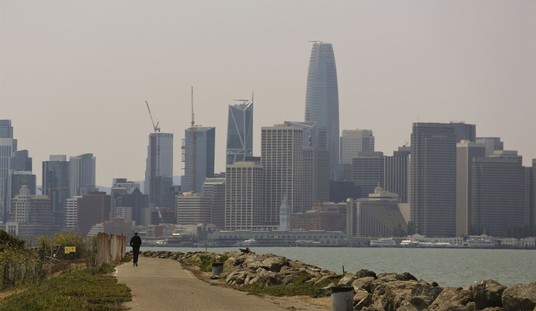Not true, of course. There are multiple reports of some Copts joining the protests. But bear this in mind if/when the Muslim Brotherhood gets its seat at the table in the new government and the inevitable whitewash among U.S. analysts begins. The Christian leaders who know them best, who’ve co-existed with them for decades, still prefer an out-and-out fascist to whatever the Brotherhood has in mind.
Fear of what may follow the removal of Mr. Mubarak, a secular strongman who has ruled the country for the past 30 years, is making reluctant supporters out of the country’s Christians, an estimated 10% of Egypt’s 80 million population. Mr. Mubarak has been aggressive in pursuing perceived Islamist extremist groups, a policy that has endeared him to Coptic Christians, not to mention the U.S.
Many Copts worry that Mr. Mubarak’s exit would leave them dangerously exposed—either by chaos, or to a government that may be more tolerant of Islamist extremists.
Pope Shenouda III, head of the Coptic Church, expressed support for Mr. Mubarak in an interview with Egyptian state television on Monday. “We have called the president and told him we are all with you and the people are with you,” Mr. Shenouda said, according to a transcript of the interview on the state television’s website.
The White House says it’s had no contact with the Brotherhood thus far, but that’s bound to change soon. Speaking of which, what do the group’s spokes-fundies think about the protests and the prospects of a new government? Reaction varies from member to member. We’ve got the creepy biding-our-time-until-we-can-pounce guy:
By far, the Brotherhood represents the most powerful force, but Mr. Beltagui and another Brotherhood official, Mohamed el-Katatni, said the group understood the implications of seeking leadership in a country still deeply divided over its religious program.
“We’re supporting ElBaradei to lead the path to change,” Mr. Beltagui said as he joined him in Liberation Square. “The Brotherhood realizes the sensitivities, especially in the West, towards the Islamists, and we’re not keen to be at the forefront.”
“We’re trying to build a democratic arena before we start playing in it,” he said.
We’ve got the vaguely threatening ElBaradei-works-for-us-now guy:
However, there have been some signs of disagreement within the opposition, with the largest group, the Muslim Brotherhood, appearing to go back on its endorsement of leading figure Mohamed ElBaradei as a negotiator with Mr Mubarak.
A spokesman for the Muslim Brotherhood, Mohamed Morsy, told the BBC: “The Muslim Brotherhood is much stronger than Mohamed ElBaradei.”
We’ve got the old familiar anti-American populist guy:
Esam al-Erian, a senior member of the executive council, said the West’s fears for Egypt’s future were due to America’s “foolish policies”.
“America’s alliances are being exposed, one by one,” he told The Daily Telegraph on Monday. “You can take in the view from Tunisia to Egypt, Lebanon, Yemen and even Palestine to see what has happened.”
And then, of course, we’ve got this guy:
Mohamed Ghanem, one of the leaders of the Muslim Brotherhood in Egypt, calls Egypt to stop pumping gas to Israel and prepare the Egyptian army for a war with it’s eastern neighbor.
Speaking with Iranian television station Al-Alam, Mohamed Ghanem blamed Israel for supporting Hosni Mubarak’s regime. Ghanem also said that the Egyptian police and army won’t be able to stop the Muslim Brotherhood movement.
In fairness to Ghanem, the Muslim Brotherhood has no monopoly on hating Israel in Egypt. According to a BBC World survey taken last year, Israel’s favorable rating inside the country is 3/92. No typo. Which is merely your latest reminder that no matter who emerges from all this — Islamists or liberals — Sunni tensions with Israel across the region are headed skyward. The only question is whether Egypt’s next powers-that-be will consider war or stick to standard-issue rhetorical demonization. Probably the latter, at least in the short-term: As Robert Kaplan said on Friday, “whatever the outcome of these uprisings, it seems clear that Arabs and their new leaders will be focused for years to come on the imperfections within their own societies — perhaps to a greater degree than on injustices committed by Israel and the West abroad.” There’s reason to believe he’s right, but economic progress will be a long haul. What reason is there to believe that, when the next government finds itself in a pinch domestically, it won’t resort to demagoging the region’s favorite scapegoat as a way out?
As a counter to the despair over the Brotherhood’s rise to power, read Daniel Pipes (who’s not known for Middle East optimism) for why the fears might be overstated. Mubarak is on his way out, but Mubarak’s never been our closest Egyptian ally. The military is, and the military stands to make big money in the coming years from the U.S. and the Saudis as payment for keeping the jihadist elements in Egypt in line.








Join the conversation as a VIP Member